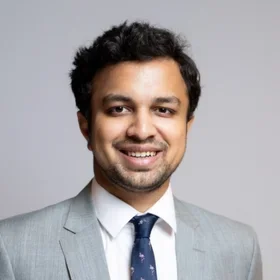“How often can you be part of a 200-year-old Ivy League institution and shape a program from the beginning?”
That was the first question posed by Craig Lyman, a member of Columbia University’s Master of Professional Studies (M.P.S.) in Wealth Management’s inaugural student cohort and a current lecturer at the program, at a recent virtual information session.
As a financial advisor at Lyman Wealth Advisors, Lyman shared that he is “25 years into [his] career, and at a place now where [he] wants to give back to the industry.”
His colleagues shared his sentiment.
“Now, sitting on the other side,” said Jason Papier, also a member of the inaugural student cohort and now a lecturer in the Wealth Management program, “I think I’m better able to have empathy for the students going through the program.” Papier, who is the managing partner at Werba Rubin Papier Wealth Management, also values the opportunity to be a mentor. “That’s the purpose of the program, as far as I’m concerned: to lift students up to the next level.”
While not a former student in the program himself, Wealth Management lecturer Michael Kothakota added that the practitioner lens an instructor like him brings to the program helps it stand out. “I can pull from the experience of the other instructors and from my own experience of situations that have occurred throughout my career.”
The cornerstone of the M.P.S. in Wealth Management program is a problem-based learning pedagogical approach where the lecturers present the students with real-world problems derived from their experiences in the field and ask the students to work together to find innovative solutions and test new frameworks.
Wealth Management lecturer Stephen Bodurtha has taught the Investment Planning course in the program since its inception. He explained how he uses real-world examples when teaching his class. “Since I've had a lot of experience working with different products and different organizations, I'm able to pull up specific examples and say, ‘Okay, we just covered this idea. Now, let's look at this particular investment.’”
Tracy Schwartz, senior program director of the Wealth Management graduate program, moderated the panel. “In addition to these wonderful lecturers that we have in the program,” Schwartz said, “they interview and bring in guest lecturers from all different firms and areas of wealth management into the curriculum. I think it really adds a lot to the program.”
The program is structured around cohorts. In addition to conducting online coursework, students participate in two in-person residencies at the opening and conclusion of the program. Lyman thinks the residencies help students in the mostly virtual program connect.
“The residencies are part of that engagement that is unique. You’re on Columbia's campus, it’s a special time, and you’re with other people who are like-minded. They’re motivated. They want to learn. They want to get better at their craft.”
About the Program
A 16-month online program with asynchronous instruction, specially designed to accommodate working professionals, Columbia University’s Master of Professional Studies in Wealth Management program is taught by distinguished faculty with deep, applied experience in their respective fields. Additionally, it is a CFP Board Registered Program designed to help students meet the educational requirements for CFP® certification.


